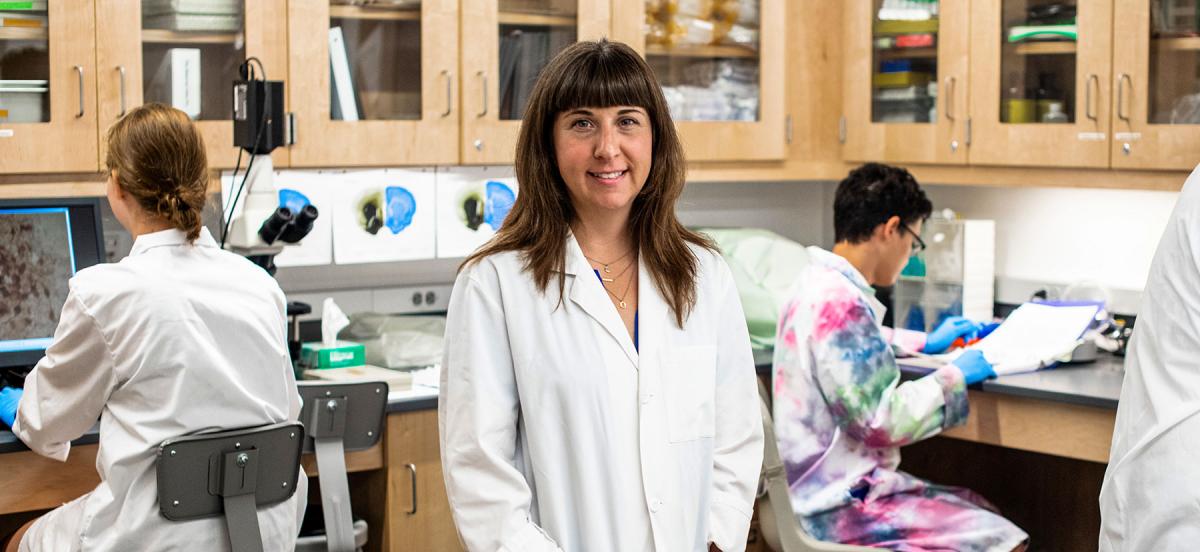Laura Been Earns National Institutes of Health Award

Assistant Professor of Psychology Laura Been is researching how post-pregnancy hormone changes impact circuits in the brain and how those brain changes may be related to behavior changes. Photo by Holden Blanco '17.
Details
The assistant professor of psychology will study how estrogen fluctuations during the postpartum period impact brain circuitry and behavior thanks to a new $439,072 grant.
Postpartum depression and anxiety may be linked to the precipitous drop in estrogen new parents experience after giving birth. A new National Institutes of Health grant will support Assistant Professor of Psychology Laura Been’s research into how such hormone changes impact circuits in the brain and how those brain changes may be related to behavior changes.
“The transition to parenthood involves major changes in hormones and behaviors,” said Been, a behavioral neuroendocrinologist. “New parents need to execute a lot of complicated new behaviors--taking care of their babies, feeding them, protecting them--this is true whether you're a human parent or a mouse parent. I'm interested in how these big hormone shifts during and after pregnancy may prepare the brain to execute these new parental behaviors. I'm also interested in how these hormone and brain changes contribute to shifts in mood and anxiety during the postpartum period.”
Been’s campus lab has been hard at work on these issues for a long time, using mice to model the postpartum estrogen withdrawal. She and the students in her lab have been collecting preliminary data for this new NIH-funded project, "Identifying the mechanism by which postpartum estrogen withdrawal impacts mesolimbic brain circuitry and motivated behaviors,” for over two years. Several students’ thesis research--William Foster '18, Paige Carson '18, Katie Beach '18, Alison Gibbons '19, Alissa Valentine '19, Dylan Gearinger ’19, and Achint Singh '19--were included in the grant proposal, and Been anticipates that many of her future thesis advisees will continue to work on the project.
“The grant proposal reviewers noted this student involvement and the exceptional training environment at Haverford as particular strengths of the proposal,” said Been.
This summer, Brandon Alonso ‘22, Roy Simamora ‘22, and Leo Costa ‘23 have already started running experiments for this research project.
The NIH has funded Been $439,072 for this work over the next three years. In addition to student research assistants and a professional technician, funds from the award also will bring a new technique to the Been lab; using fast scan cyclic voltammetry, the team will be able to precisely measure dopamine release in the brains of their hormone-treated mice.
“As a mentor, one of my most important goals is training undergraduates to do rigorous neuroscience research, so it's validating to have our work recognized as meritorious by the National Institute of Mental Health,” said Been. “This grant support will allow us to expand the repertoire of techniques we use in my laboratory, and provide cutting-edge research training for students from the Psychology Department and the recently expanded Bi-College Interdisciplinary Neuroscience Program.”



